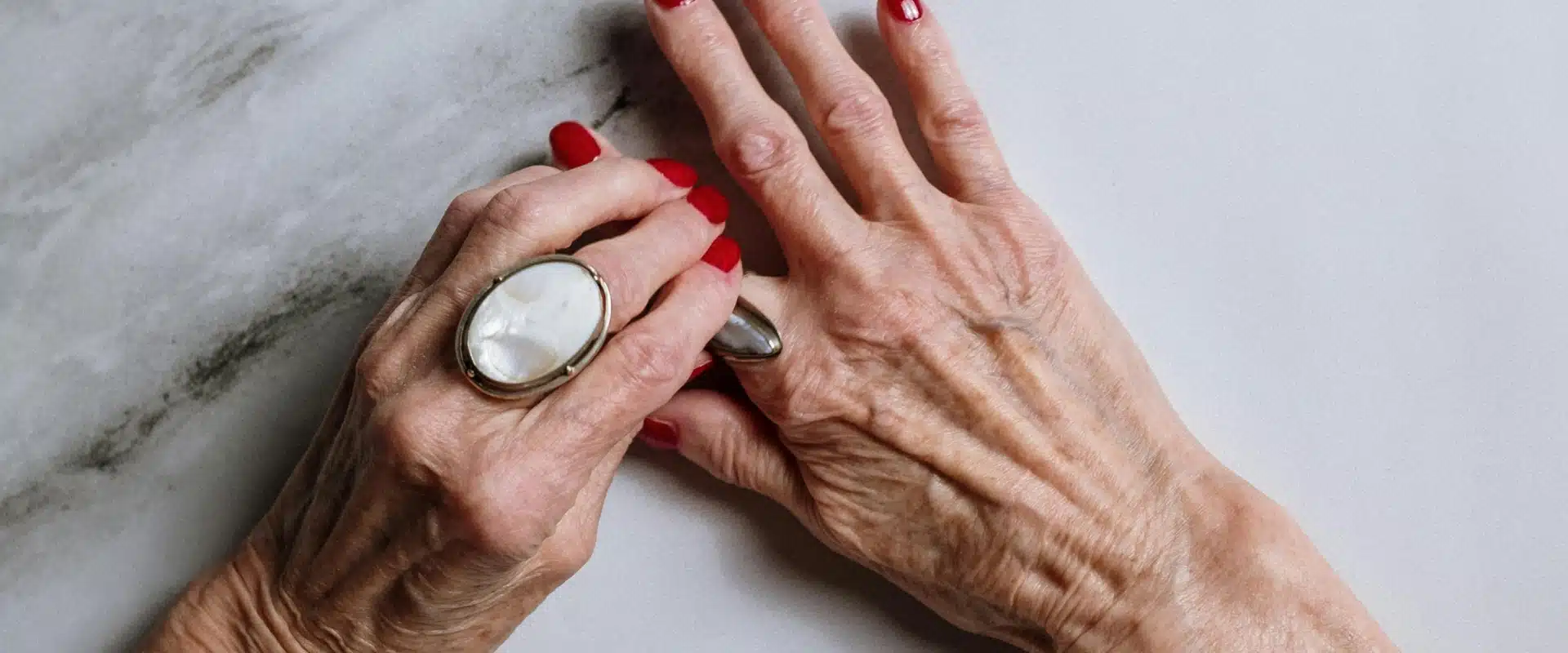As the body’s largest organ, the skin protects us from environmental hazards, regulates body temperature, and provides sensory information. However, as we age, our skin undergoes significant changes that result in thinning and increased fragility. One common concern for seniors is thinning skin, which can make it appear more fragile and susceptible to damage, often termed dermatoporosis. Understanding the reasons behind this phenomenon and how to manage it effectively is crucial for maintaining skin health, especially in older adults.
The Layers of Skin and the Aging Process
The skin is composed of three main layers:
- Epidermis: The outermost layer acts as the first line of defense against external environments, such
as UV radiation and harmful pathogens. This layer also houses melanocytes (pigment-producing cells) and gives our skin its color. - Dermis: The middle layer that contains blood vessels, nerves, and hair follicles and provides structure and elasticity with collagen and elastin fibers
- Hypodermis (subcutaneous layer): This is the deepest layer of skin of fat and connective tissue that contributes to insulation and cushioning.
As we age, our skin undergoes significant changes across all three layers, leading to thinning and fragility. The epidermis becomes thinner, with fewer melanocytes, resulting in a pale appearance and increased susceptibility to UV damage and external pathogens. The dermis loses elasticity, and blood vessels become fragile, causing easier bruising and reduced recovery from damage due to decreased collagen and elastin. Lastly, the hypodermis also becomes deficient in fat, reducing cushioning and firmness and contributing to a saggy appearance. In addition, sun exposure, smoking, excessive alcohol consumption, and certain medications also contribute to accelerating skin thinning. Other contributors to aging skin are slower cellular turnover, decreased collagen and elastin production, reduced blood flow, and cumulative UV damage.
The Consequences of Thinning Skin
Thinning skin in seniors can lead to complications such as increased bruising, longer wound healing times, dryness, itchiness, and heightened sensitivity. The fragile blood vessels make bruising more frequent, while slower skin regeneration increases the risk of infections from chronic wounds. These issues are particularly concerning for older adults in care facilities, as they may already face other health challenges that complicate healing.
How to Protect Aging Skin?
Although it is not possible to completely reverse the effects of aging on your skin, the following steps can be taken to prevent further damage,
- Sun Protection: Use sunscreen with SPF 30 or higher daily, wear protective clothing, and avoid peak sun hours. When outdoors, try to wear protective clothing, such as wide-brimmed hats and long sleeves.
- Moisturize: Apply gentle moisturizers for mature skin to maintain hydration and protect the skin barrier. Look for moisturizers specifically designed for aging skin containing hyaluronic acid and ceramides.
- Healthy Diet & Hydration: Consume a balanced diet of fruits, vegetables, antioxidants, and omega-3 fatty acids to support skin health. Alcohol and smoking cessation also help to minimize further damage. Drink plenty of water to keep your skin and body hydrated from within.
- Gentle Care: Use mild, fragrance-free soaps and avoid hot showers to prevent dryness and irritation.
- Consult a Dermatologist: If you are experiencing the effects of aging on your skin, regular visits to a dermatologist can help monitor skin health and provide tailored advice (advice onspecific products and treatments)
Takeaway:
As we age, our skin undergoes significant changes, becoming more fragile and prone to injury. Intrinsic factors like genetics and extrinsic factors such as sun exposure, UV radiation, and lifestyle choices influence skin thinning. While aging skin cannot be reversed, many steps can be taken to protect against further skin damage. Seniors should be particularly vigilant about sun protection, hydration, a healthy diet, gentle skin care, and dermatologist checkups.
At OnSite Dermatology, we understand the unique challenges that seniors face regarding their skin, and we are committed to providing expert care and advice tailored to their unique needs. We offer essential skin cancer screenings, treatments, and professional medical care without needing transportation, making it convenient and accessible for older adults to maintain healthy skin, especially in community centers and retirement homes. For more information or to schedule a consultation, fill in the form below or give us a call on (877) 345-5300.

